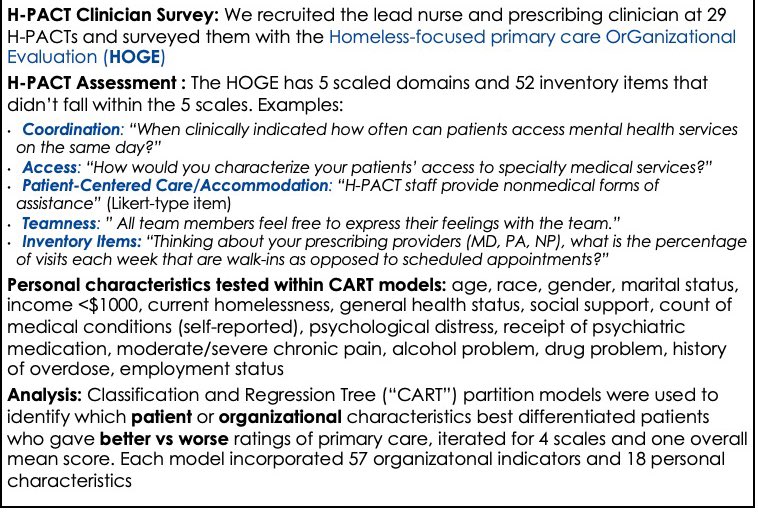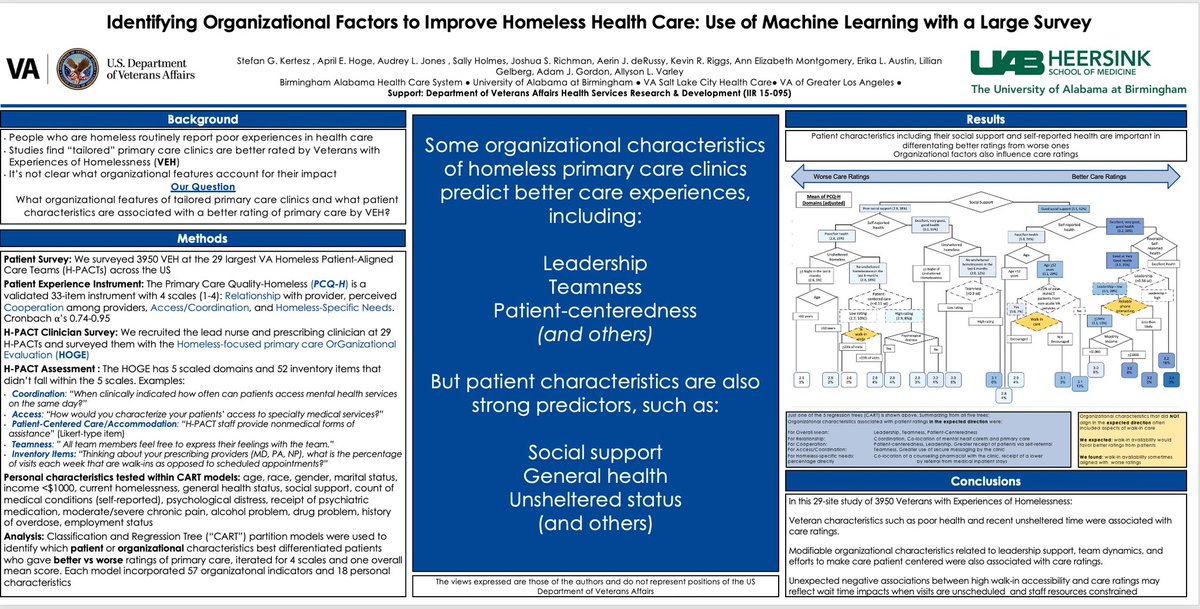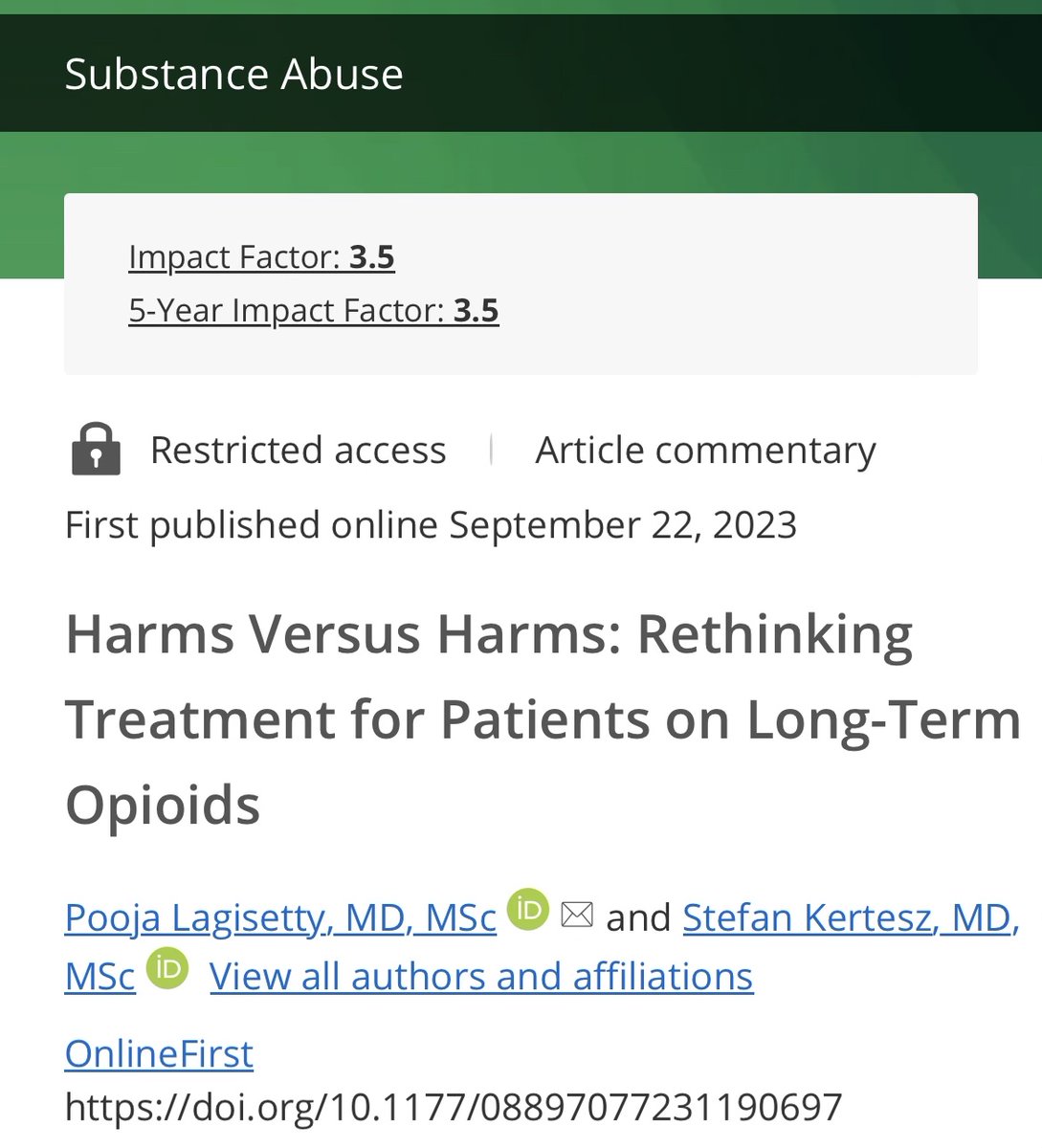1/While I was in with air travel chaos and missing Poster Session 1, Dr Jane @liebschutz got our poster up on the boards.
Thanks 😊 !
Our work looks at 29 VA clinics for homeless Veterans to learn what features offer a better care experience, applying machine learning
Thanks 😊 !
Our work looks at 29 VA clinics for homeless Veterans to learn what features offer a better care experience, applying machine learning

2/We surveyed 3900 homeless-experienced Veterans AND the staff in 29 clinics where they got primary care. And asked what clinic features make the difference?
Problem: we had 57 organizational characteristics of interest, and 18 personal characteristics to address
Problem: we had 57 organizational characteristics of interest, and 18 personal characteristics to address

3/With a brilliant statistician we ran Classification And Regression Tree analysis - the “machine” to sort out which of those variables best partition the Veterans rating primary care better vs worse.. both patient and clinic characteristics matter … 

4/This is obviously an #SGIM22 abstract/poster. We will refine our understandings, but what we find is that clinic characteristics like team functioning + leadership + patient centered accommodation of care were important … thanks to @vahsrd funding and collaborators.. 

5/Our teamwork/dream work includes these bright ones and many not in Birmingham like @AJ_Gordon @DrAudreyJones and Lillian Gelberg - we aim to improve care. /fin 

• • •
Missing some Tweet in this thread? You can try to
force a refresh

















